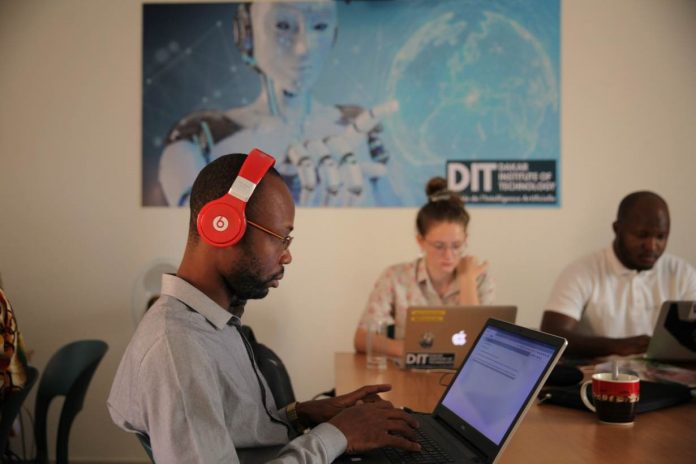By Nellie Peyton
Data analyst Fabrice Sonzahi enrolled in a course on artificial intelligence (AI) in Dakar, hoping to help struggling farmers improve crop yields in his home country of Ivory Coast.
He is part of an inaugural batch of students at a new AI programming school in Senegal, one of the first in West Africa.
Its mission is to train local people in using data to solve pressing issues like the impact of climate change on crops.
The Dakar Institute of Technology (DIT), which opened in September, is running its first 10-week boot camp with nine students in partnership with French AI school VIVADATA.
“I am convinced that by analyzing data we can give (farmers) better solutions,” said Sonzahi, 30.
He plans to bring his AI skills to Ivorian startup ATA Solution, which advises farmers on how to maximize scarce resources like land and water.
The company already collects data such as soil PH, temperature and moisture levels, said Sonzahi, who works with the startup as an analyst.
With AI, that data could be processed to show exactly when and where farmers should add water or fertilizer, and help strengthen their understanding of crop losses, he said.
Data scientists across the continent are beginning to experiment with machine learning as a tool to help farmers cope with increasingly erratic weather, from modelling the fastest route to market, to detecting problems in fields with drones.
In Cameroon, a new mobile phone app called Agrix Tech allows farmers to photograph a leaf affected by blight and then, using AI, diagnoses the problem and recommends treatment.
A project launched in Kenya this year also uses AI to crunch big data and give smallholder farmers recommendations such as when to plant, in a bid to avert food shortages, according to French technology firm Capgemini.
But knowledge of AI and training opportunities are slim, especially in West Africa where fixes for crop failure are sorely needed, said DIT director Nicolas Poussielgue…



